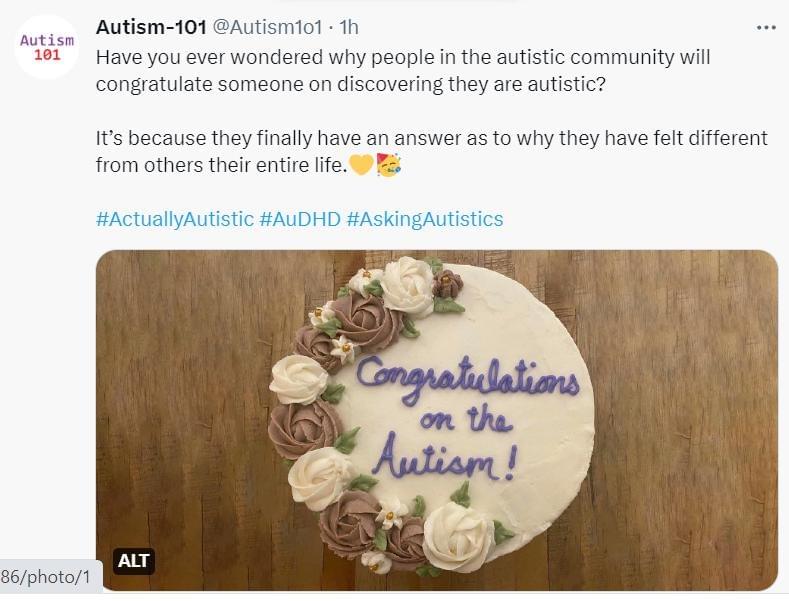
CONGRATULATIONS ON THE AUTISM
I get somewhat tired and wearisome when receiving commiserations on my autism from others. I don't take umbrace, though, because these commiserations take the form of a well-meaning sympathy and reassurance. And the struggles I relate are real and extensive, indicating a weight and a burden that solicits a certain compassion, even pity. The assumption is that autism is a terrible affliction that leaves its bearer living life confronted by impossible odds.
So people will say things like 'we value you for who you are,' as in regardless of the awful autism; 'we are all a little bit on the spectrum,' as in offering reassurance that you are not alone and out on a limb. And so on. All of this is based on the impairment model of autism, identifying autism with a series of negative traits.
Entirely missed is the other side of diagnosis - discovery as self-discovery, knowledge as self-knowledge. These are states that precious few people in the wider community attain. Many people, most even, live lives of unknowing inauthenticity. They may think themselves well-adjusted members of their society, perfectly fitted in terms of having jobs, families, friends, etc. They may well be as inauthentic as the society they are fitted to.
'The unexamined life is not worth living,' said Socrates. If there is one way to describe the lives that autistic people lead, it is 'examined.' Autistic people have self-awareness and self-knowledge, and that is a quality only the honoured few possess.
When it first became clear to me that I was autistic my feeling was one of revelation. It was more than relief at having all my past and present struggles explained, it was a real thrill and joy at being something unique and distinct, with experiences and talents that were 'different.' Where those focused on impairments would say 'abnormal,' those aware of the anarchic abundance would say 'supernormal.' I want those who offer commiserations instead of congratulations with respect to my autism to make the effort to see that the reasons so many autistic people struggle, and hence stand in need of commiseration, is not due to the autism itself, but to way others treat autistic people. In being sympathetic, i would expect people to see their own complicity in the struggles autistic people face, and make changes in their behaviour. Should they be able to do that, they will be able to exchange their commiserations for congratulations.

